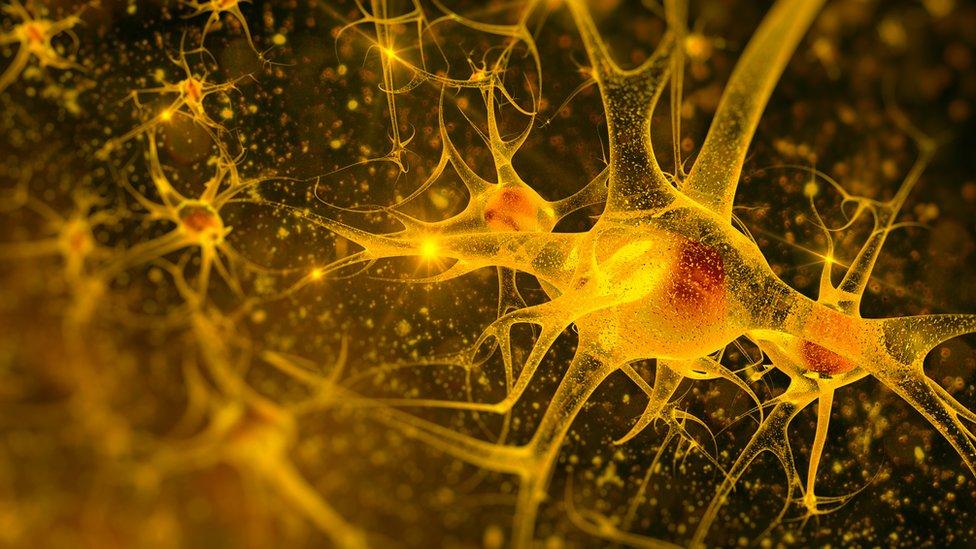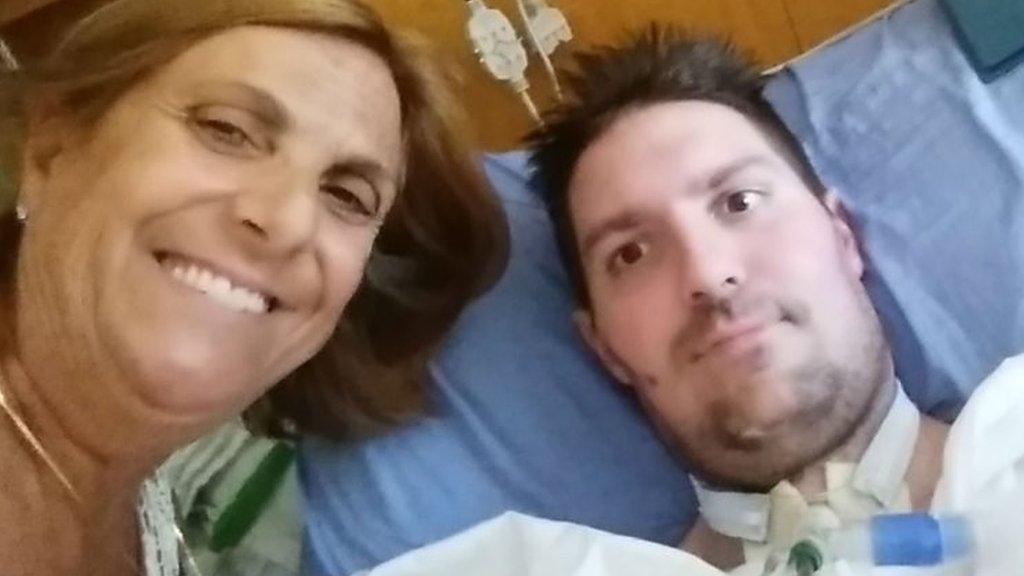Swansea University scientists discover possible ALS treatment
- Published

ALS is a rare condition affecting the nervous system - there is currently no cure
Scientists from Swansea University have discovered a possible treatment for the motor neurone disease ALS.
The debilitating disorder - a rare condition affecting the nervous system - came to prominence in 2014 with the Ice Bucket Challenge.
Now researchers, led by Prof William Griffiths, have found that anti-cholesterol drugs could be used to help patients.
There is currently no cure for ALS, also known as Lou Gehrig's disease.
Drugs only modestly slow the progress of the disease in a fraction of patients.
Prof Griffiths, of the university's medical school, has published a survey that shows people with ALS have higher levels of cholesterol in the fluid surrounding the brain than people without the disease.
"We think that people with ALS are unable to dispose of cholesterol from [their] brain efficiently, leading to the presentation of the disease," Prof Griffiths said.
He added he was optimistic the research would provide a way to diagnose ALS, and "a route to development of a new drug" to treat it.
'Promising'
There are about 240 people known to be living with motor neurone disease, or MND - of which ALS is the most common form - in Wales, and about 5,000 across the UK.
Dr Brian Dickie, director of research development at the MND Association, said: "We are delighted to see the results of this fruitful collaboration between the universities of Swansea and Oxford has identified a promising new disease marker in ALS patients.
"The development of effective treatments for neurological diseases, including ALS, will continue to struggle without greater understanding of the changes occurring within the central nervous system.
"These new findings may assist with earlier diagnosis of the disease and potentially open up new avenues to future treatment."
- Published27 July 2016

- Published27 July 2016

- Published19 August 2015

- Published27 July 2016

- Published2 August 2015
